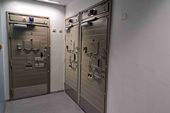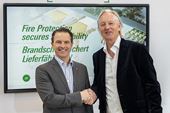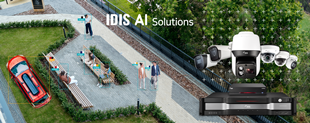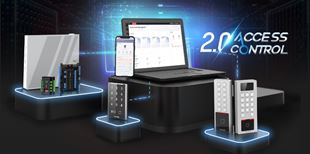New builds and conversions are often extensive projects with several different types of door environments where automation is used. There may also be many different consultants involved when it comes to which products are chosen. The risk with many different actors is that the proposed solutions do not take into account the entire set of requirements – including the Machinery Directive's safety requirements, but also evacuation, accessibility and fire requirements. It is not uncommon for inconsistencies in the documents to be discovered later in the project, which is often costly.
"If you are interested in access solutions that comply with the Machinery Directive, as well as all requirements for accessibility, fire safety and evacuation, the best possible communication between the various actors is required. Coordination of the requirements from different stakeholders is needed to find a cost-effective overall solution that meets the needs of the business, legal and authority requirements", says Anders and continues. "This is where knowledgeable security experts can play a central key role by having a total overview right from the initial phase of the project."
Support in all phases of the project
According to Anders, Dormakaba has one of the most complete ranges in access solutions and can make a difference by being an advisory partner to property owners, architects, security consultants, installers and project managers from project start to finish. "We have a dedicated project team that maintains a close dialogue during all phases of the project and supports by writing, changing or reviewing specifications and providing suggestions for cost-effective overall solutions that meet all requirements," explains Anders Sandgren. "Close dialogue between manufacturers, architects, safety consultants, installers and project managers is crucial to achieving success in the project - and it is often several of these stakeholders that we usually collaborate with."
Proven solutions offer a head start
A simpler way to live up to the Machinery Directive when it comes to automated doors is to choose products and solutions that have been used countless times before.
"Just as an example, our door operators Dormakaba ED100/250 are proven products that have been on the market for many years. They have proven themselves in numerous solutions and projects that comply with the Machinery Directive," says Anders Sandgren. "This means that you not only get a sustainable and safe technical solution, but also a starting point that significantly simplifies the process by the fact that the products have passed all requirements and tests many times before. There are already trodden tracks to follow, so to speak. A door with automatic opening is considered a machine and the installation must therefore comply with the Machinery Directive. The European standard SS-EN 16005 covers safety when using machine-operated doors for passenger traffic and provides guidance on how to handle the requirements placed on an automated door."
Anders offers additional tips and advice on the subject:
- SS-EN 16005 does not apply retroactively to installations before 2012, but you still need to think about conversions or when replacing components on existing automatic doors. That is to say, if a major change is made, the door and the automation must be handled as a new machine according to the standard.
- Regardless of the type of building, there must always be a guard at the back of an automated door. This can be done with a mechanical guard or safety sensors individually or in combination to prevent crushing injuries. A miss of small details like this can be costly in larger projects.
- You can save energy by opening and closing doors intelligently. An example of this is double door solutions where you can choose to open only one door instead of both if a full opening is not needed. Many access products today have built-in energy-saving functions.
- Automated and self-opening doors simplify passage flows. Touch-free doors offer great hygiene benefits. Surfaces that we touch with our hands can, as you know, be sources of infections.
- The planning of emergency and panic evacuation is always important, regardless of whether it concerns one door or several. Doors need to be prepared to be opened in an emergency to control human flows according to a predetermined plan. In large systems, doors can be connected to a common control system for the property. Rules for evacuation differ between different countries, even in the Nordic countries. Dormakaba can support in a holistic perspective.
















